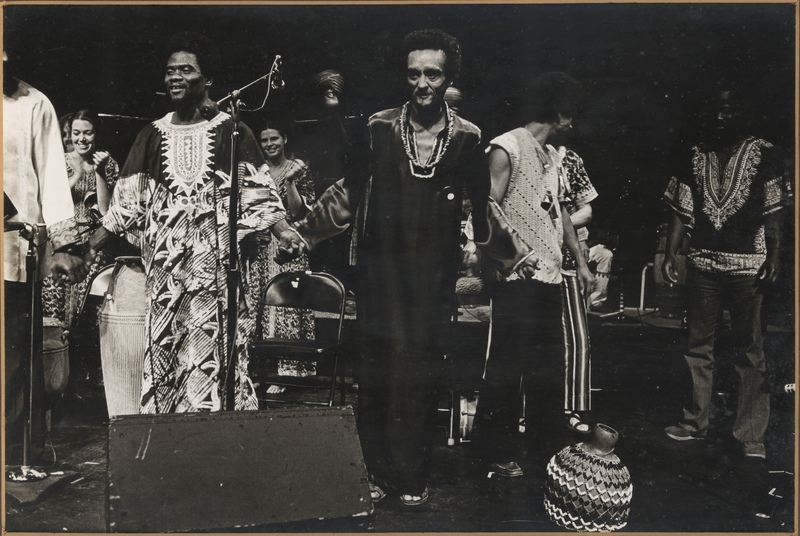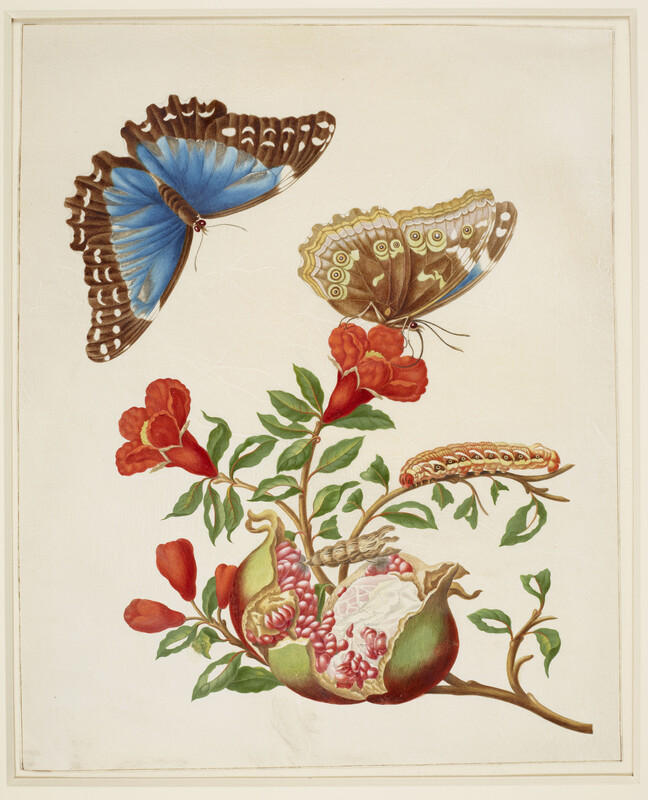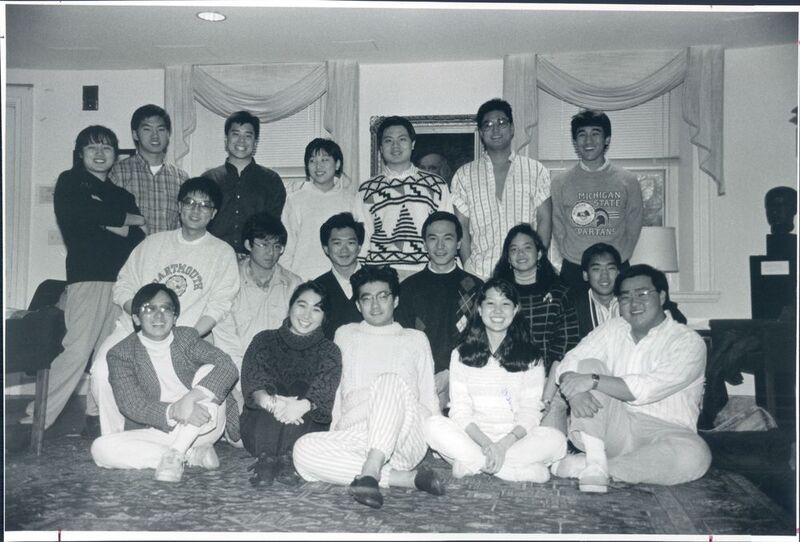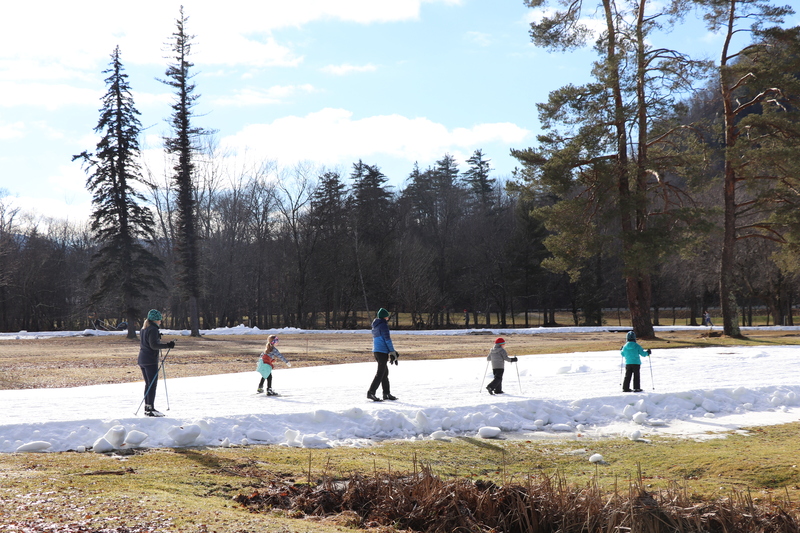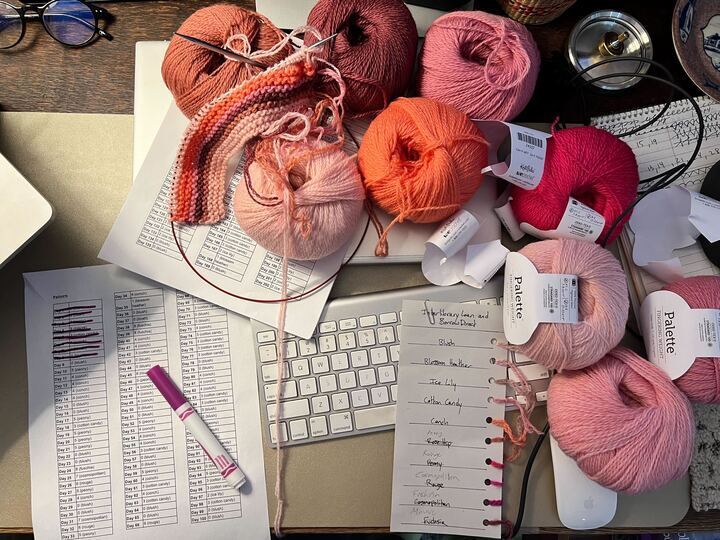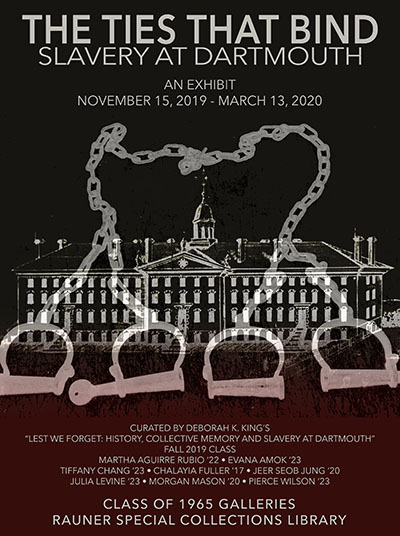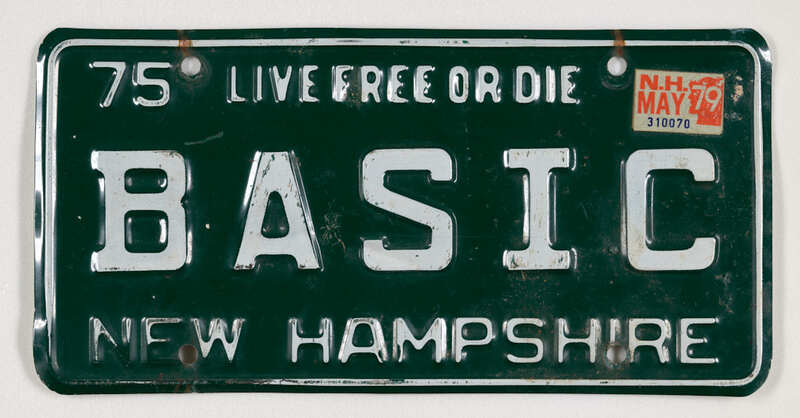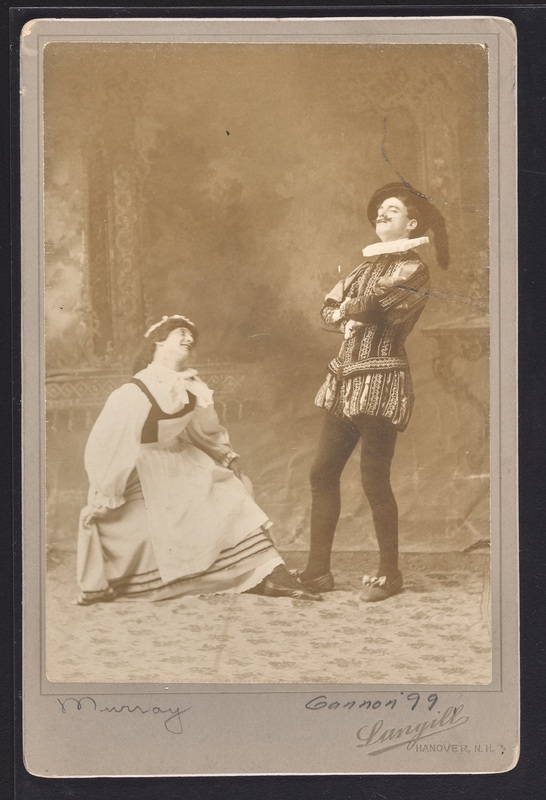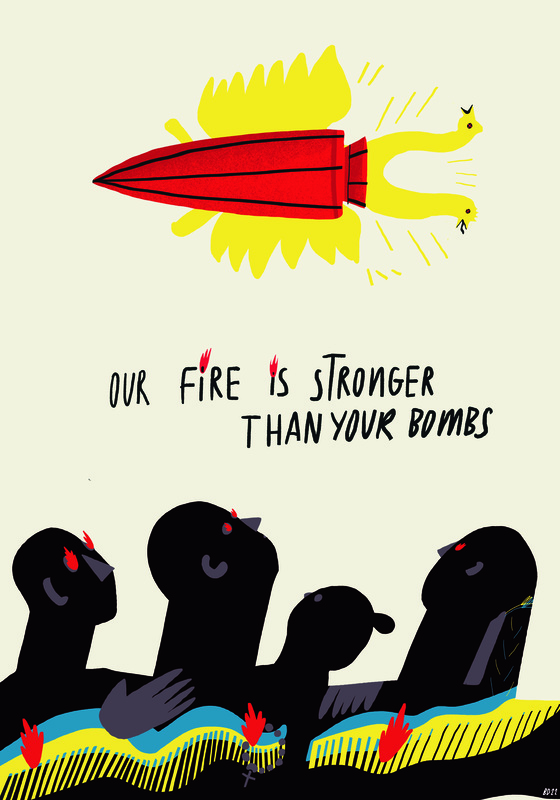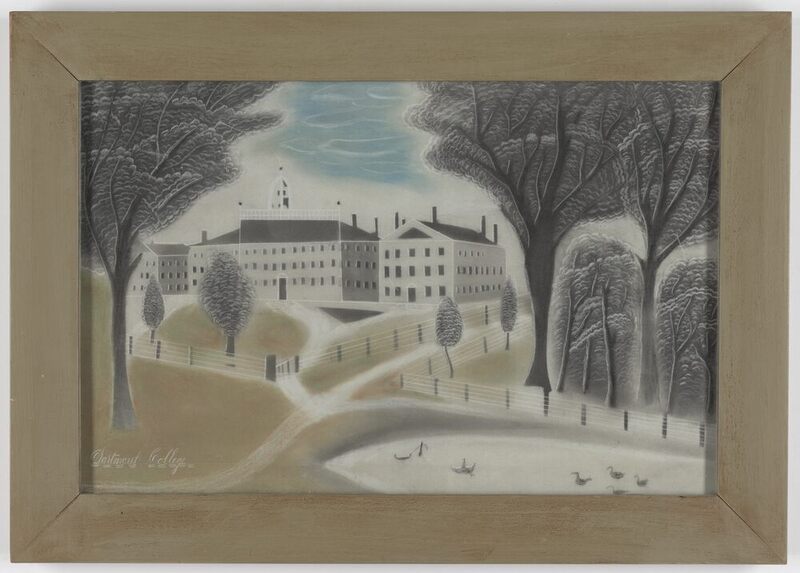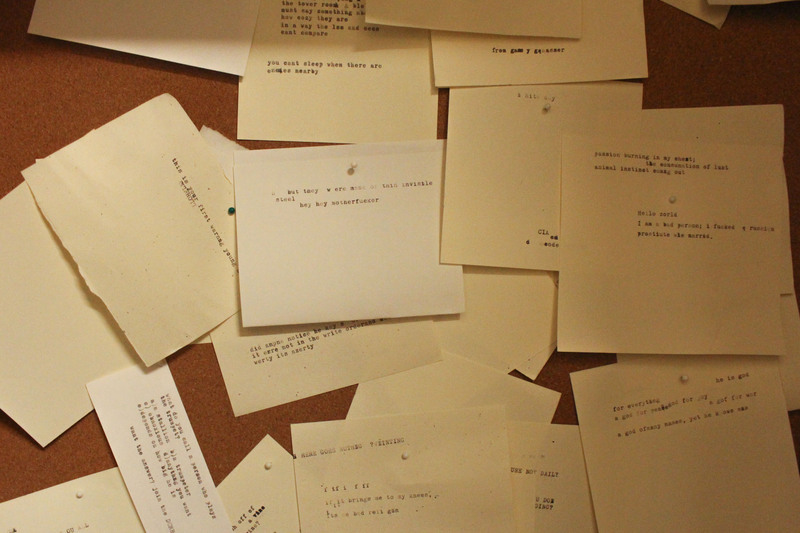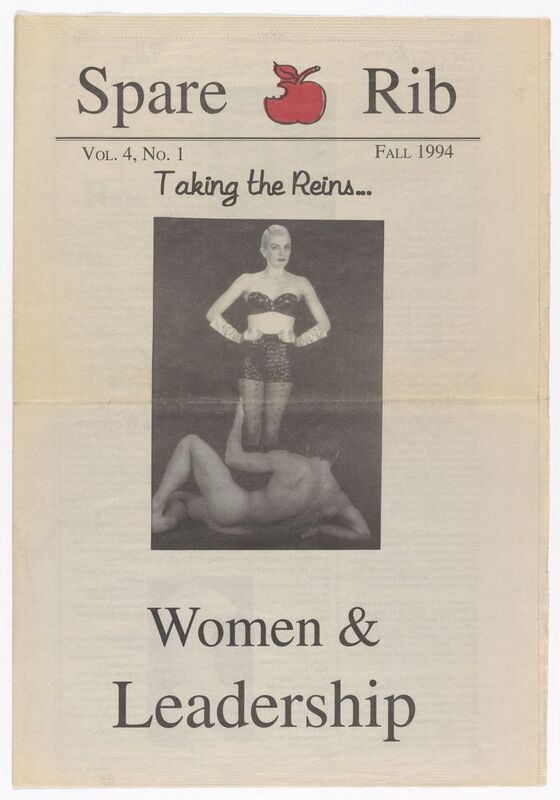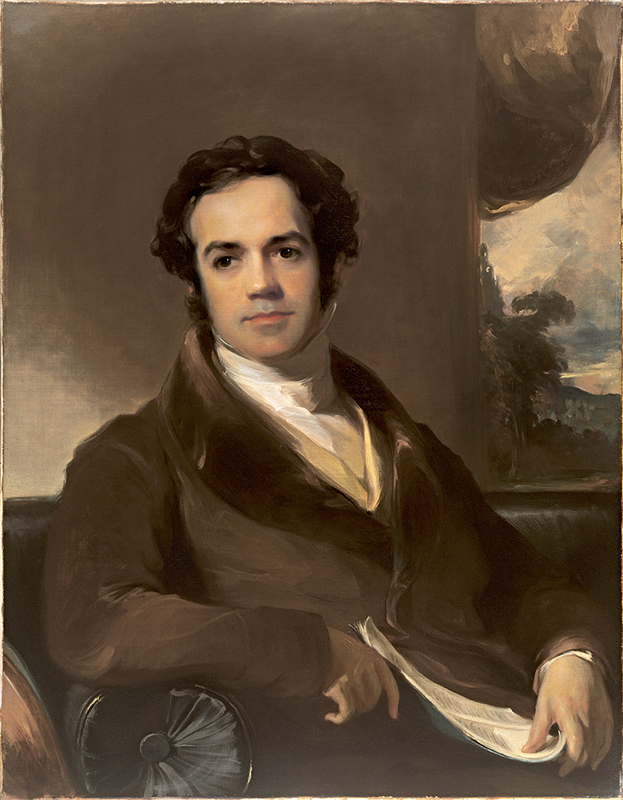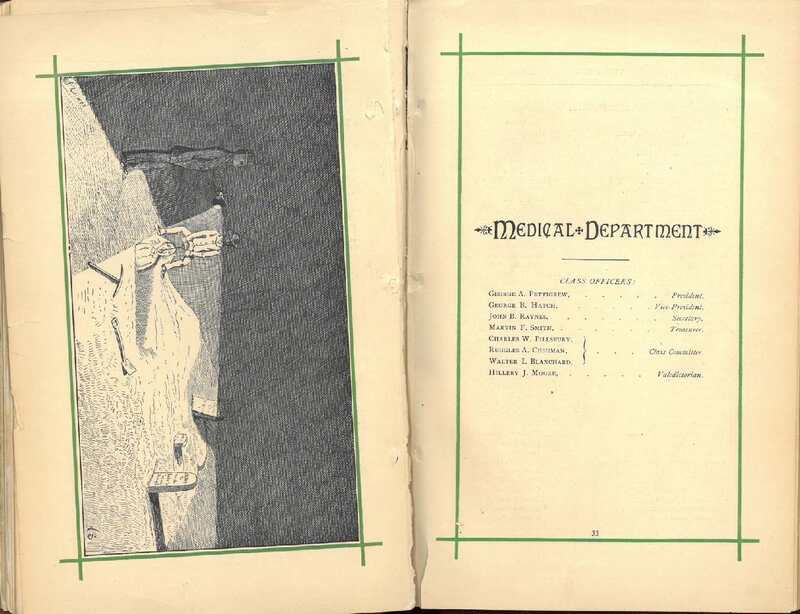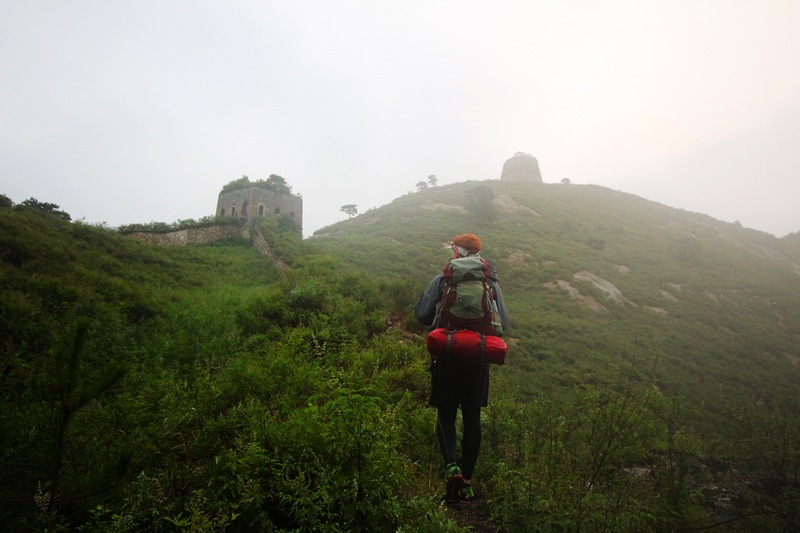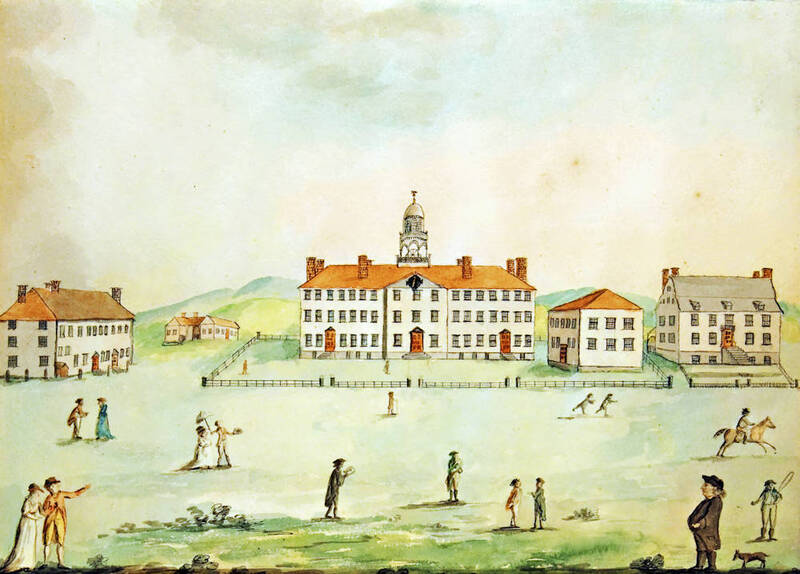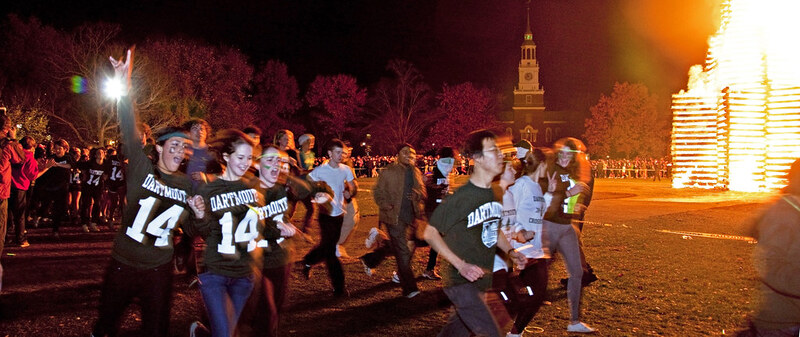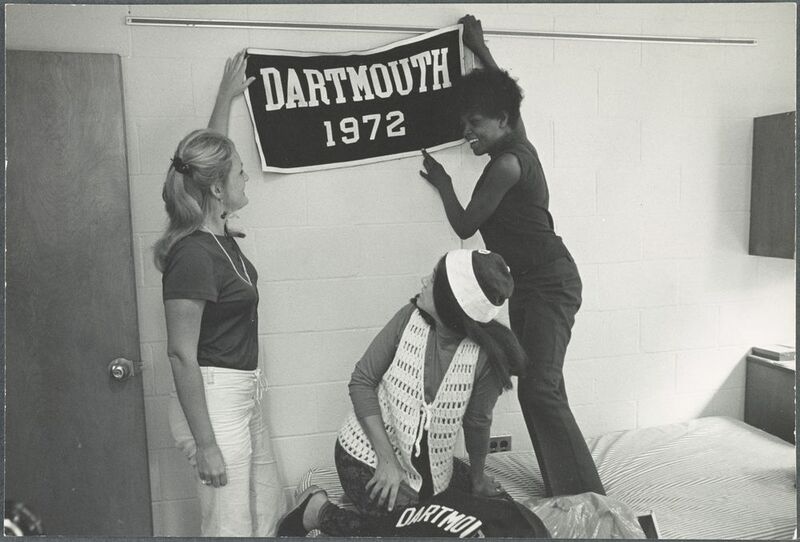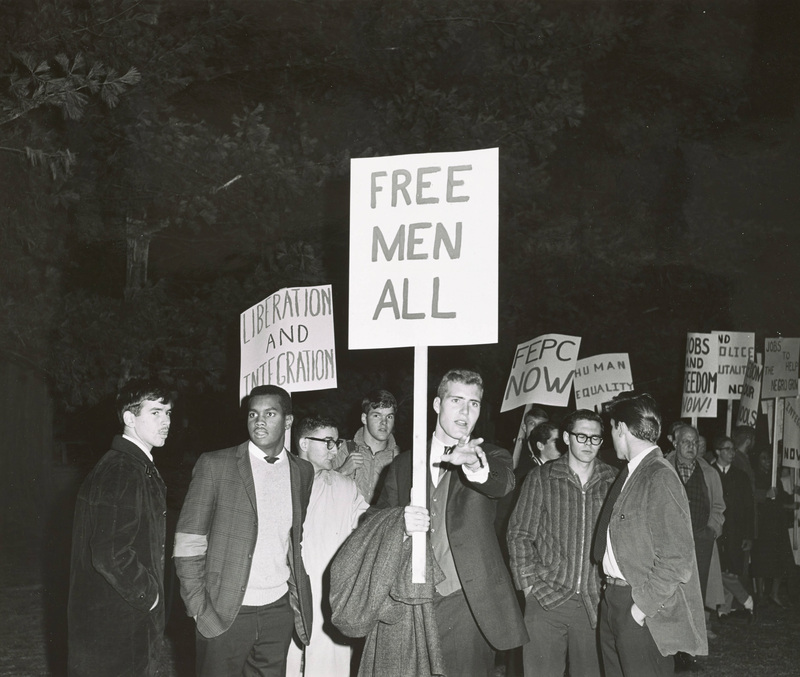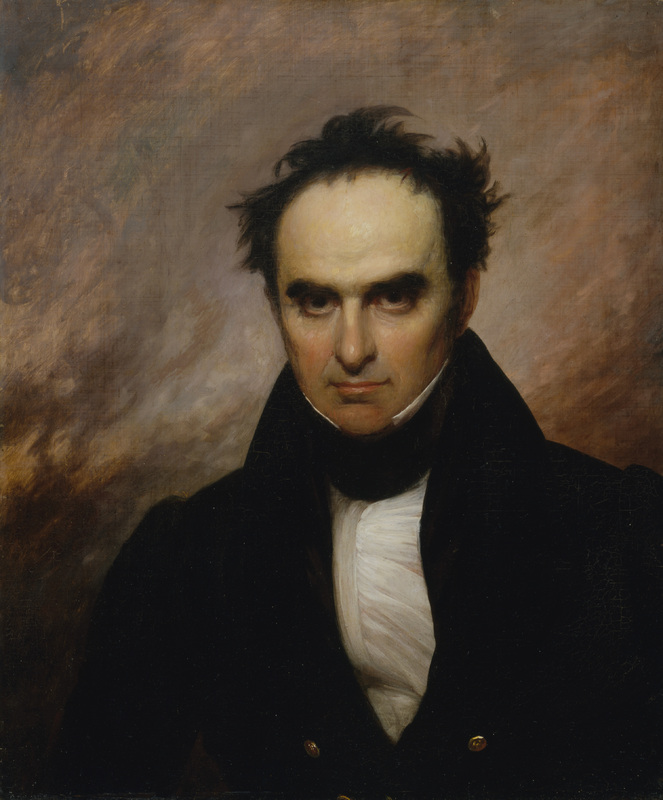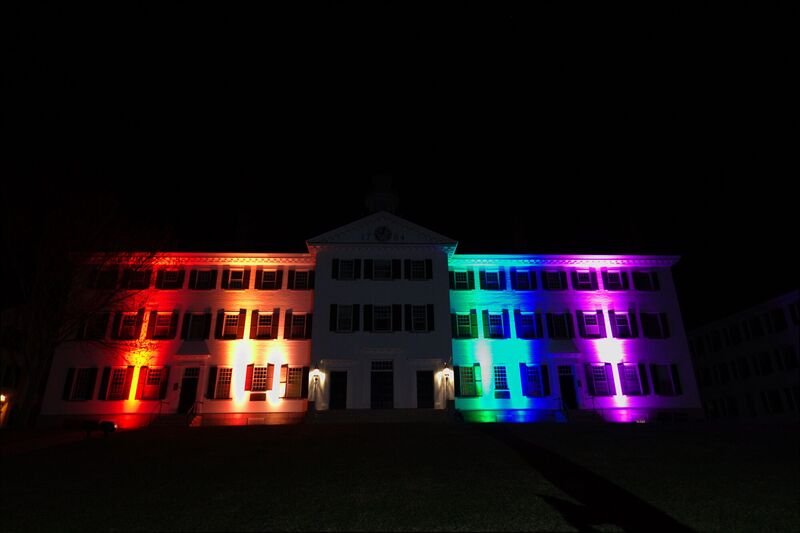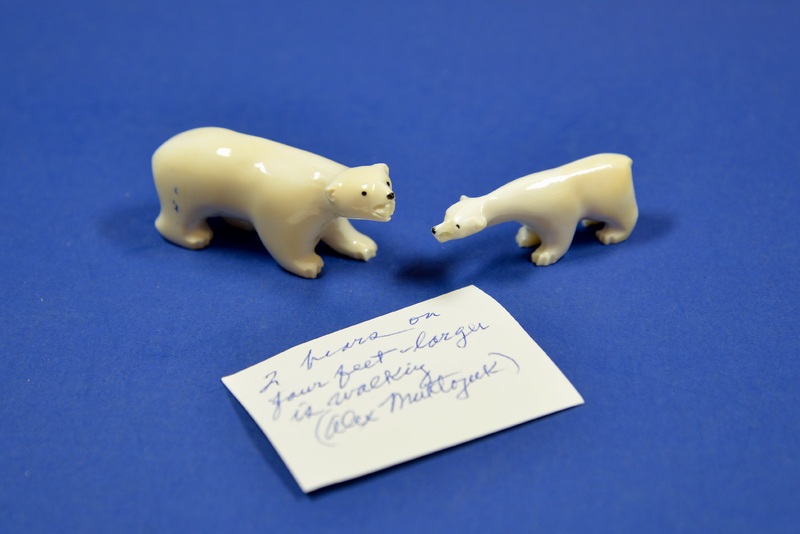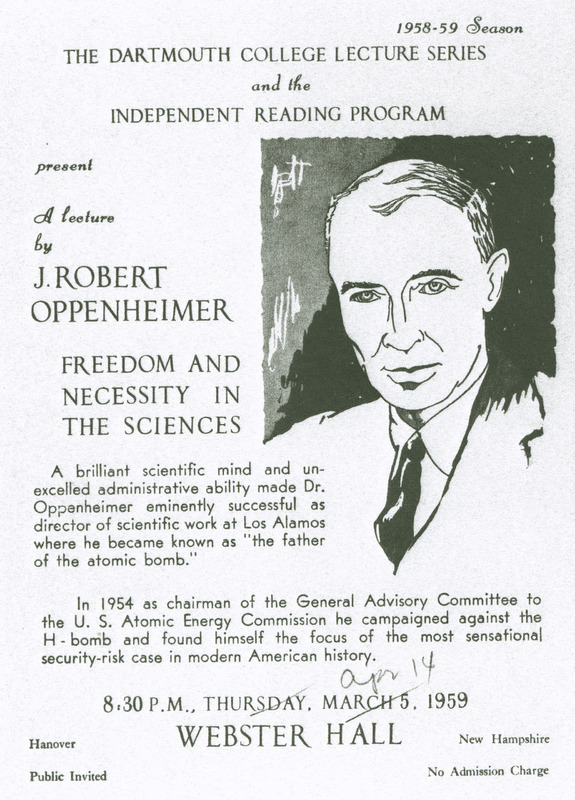Black Creative Music at Dartmouth
This digital exhibit supplements the Black Creative Music at Dartmouth digital collection which came out of Daniel Lin '23’s digital library fellowship. Through a combination of primary source research and interviews/oral history, this project aims to generate lasting, honest, insightful, and engaging documentation of the complicated history of Black Creative Music (jazz, gospel, blues, R&B, funk, etc) at Dartmouth.
Visionaria Botanica: the Exquisite Botanical Illustrations of Maria Sibylla Merian
A celebration of the work by 17th century illustrator, Maria Sibylla Merian, this exhibit by Research and Learning Librarian Lilly Linden and colleagues invites all of us to slow down and observe the intricacies of the natural world around us. You might just observe something brand new to science!
DAPAAA at 25: Our History, Our Voices, Our Future
Members of the Dartmouth Asian Pacific American Alumni Association (DAPAAA) created the content for this exhibit as a part of DAPAAA's 25th anniversary celebration and the on-campus reunion on May 3-5, 2024. In this exhibit commemorating the 25th anniversary of the Dartmouth Asian Pacific American Alumni Association (DAPAAA), we unearth and celebrate the stories, achievements, and contributions of students, alumni, and faculty at Dartmouth and beyond.
Saving Winter: New Hampshire Skiing in the Era of Climate Change
Due to climate change, winters are warming and snowfall is decreasing in NH, portending more such winters to come. If climate change continues as usual without major actions to reduce global greenhouse gas emissions, the state is projected to see roughly 40 percent less snowfall, 60 percent fewer days of deep snow cover, and a 20 to 50 percent reduction in days cold enough for ski areas to make snow by the end of the century. This exhibit examines what warming winters mean for NH’s culture, economy, and environment, and particularly at how skiers and the ski industry are responding to the changing climate.
Fibery Library
In late 2022, a group of Dartmouth Library staff members came together to launch the Fibery Library. The team wanted to encourage library staff and the campus community to engage and interact with library-specific data in an unexpected, creative way. Their solution? Combine metadata visualization and crafting with physical materials to think innovatively about the interaction between the digital and the physical. This exhibit highlights their work.
The Ties that Bind: Slavery and Dartmouth
Eleazar Wheelock came to Hanover and carved a place for Dartmouth College out the wilderness, or so the story goes. Often overlooked in that account is the significance of enslavement in the founding and the first century of the College. In this exhibit, the students of Professor Deborah King's Sociology course, "Lest We Forget: History, Collective Memory and Slavery at Dartmouth" explore the role played by the enslaved people of Dartmouth's first two presidents, and the College and Hanover as a site for the intellectual, moral and political debates surrounding slavery.
Sharing the Computer: How the Dartmouth Time-Sharing System Made Computing (More) Accessible
This exhibit traces the history of the Dartmouth Time-Sharing System (DTSS) in the 1960s. Professors John Kemeny and Thomas Kurtz were two faculty members who first drove the implementation of computing at Dartmouth, both promoting the philosophy that computing should be as accessible to an undergraduate student as an open-stack library. Time-sharing worked by allowing multiple users to connect to a single, powerful computer via teletype terminals. This efficient arrangement allowed many, many more people to learn to use a computer for the first time, and eventually, the effects of the DTSS reached even beyond Dartmouth.
Belles of the Ball: Twelfth Night and Performing Gender at Dartmouth
The Dartmouth Players were the first amateur theater company at the College. Until 1925, the group was all-male, meaning men played the women's roles in their productions. Amid fears about homosexuality on campus, the Players began including women in 1925. Their last all-male production was Shakespeare's Twelfth Night, a play that heavily features crossdressing and homosexual undertones in its romantic scenes. The Players had performed Twelfth Night once before, in 1899. At the time, it was the first amateur Shakespeare play done at the College in many years, and it was a hit both on and off campus. This exhibit explores both of these landmark performances and the ways 'female impersonation' influenced their reception.
Our Fire Is Stronger Than Your Bombs
On February 24, 2022, Russia launched a full-scale invasion of Ukraine. The war continues, ruining the lives of millions of people and uprooting the principles of civilized life as we know it. This exhibition commemorates one year since its outbreak to raise awareness among the Dartmouth community and beyond of the war raging in the heart of Europe. Our exhibit showcases artworks of eight Ukrainian illustrators, most of them living and working in Ukraine—sometimes, with no power, water, cell signal, or Internet connection. Many of them have long been collaborating with global media, in particular, The New Yorker, The Atlantic, Zeit, Adweek, and other outlets.
Finding Community: The Life of Edward Mitchell 1828
Edward Mitchell was the first student of African descent to attend Dartmouth College. In 1824, students protested the Board of Trustees' decision not to admit Mitchell because of his race. The students’ activism was supported by the faculty, the Board relented, and Mitchell took his rightful place in the student body. Born in Saint-Pierre, Martinique, in 1792, he had been a sailor and a porter before coming to Hanover. He graduated from Dartmouth in 1828, was ordained, and moved to Georgeville, Canada, where he found community and his calling in ministry. This exhibit examines the fascinating life of Edward Mitchell from Saint-Pierre, to Dartmouth, to Georgeville.
May contain harmful content
Story Booth
A repurposed phone booth with a vintage typewriter inside, the Story Booth (located near the Book Arts Workshop) gives visitors the chance to type up their thoughts, impromptu poetry, or whatever else might come to mind — and leave things pinned to the booth’s inside walls for others to read. A space both private and public, the Story Booth has produced a wide selection of typewritten snippets that reflect the everyday happenings and inner lives of the Dartmouth community. Browse a selection of mostly anonymous writings from the past few years.
May contain harmful content
Fifty Years of Coeducation @ Dartmouth - Resistance, Persistence, and Empowerment
This exhibit marks the 50th anniversary of coeducation at Dartmouth, the most momentous change the institution has ever seen in its history. The exhibit explores the lead-up to that decision, the experiences of the first women students at Dartmouth, and the ways campus life and traditions have evolved in the half-century since then.
A Boston Brahmin Abroad: George Ticknor, Hispanism, and Dartmouth
George Ticknor, Dartmouth Class of 1807, embodied the nineteenth-century concept of a "gentleman of letters." After Dartmouth, he studied law, then moved into his real love, language and literature. He became the first professor of modern languages at Harvard and revolutionized the teaching of modern languages and literatures in the United States. This exhibit gives an overview of Ticknor's life, work, and enduring influence.
A History of Anatomical Donation at Dartmouth Medical School
Explore the history of anatomical donation at the Dartmouth Medical School from its earliest days in the late 1700s and 1800s - an era marked by graverobbing, arrests, and the kind of reputation one might expect the school to carry as a result - to the current Anatomical Gifts Program and the respectful and emotionally powerful ways in which students interact with donors and their families.
Dartmouth 250 Adventuresome Spirit
How do you experience adventure at Dartmouth? The truth is, there is no single Dartmouth adventure. We all experience moments of courage and risk-taking differently. Some individual adventures culminate at Dartmouth, others begin here. In this exhibit, we offer a small sampling of individuals and groups who have helped to shape the adventuresome spirit at Dartmouth -- through innovation, service, teaching, athleticism, exploration, and leadership.
Dartmouth 250 Curriculum Vitae
Latin for “a course of life,” a curriculum vitae can be a written summary of past accomplishments, but it can also be understood as the arc of experience that runs through our lives. In this exhibit, we invite you to reflect on the course of the liberal arts throughout the life of Dartmouth College.
Dartmouth 250 Generations of Community
Dartmouth can be envisioned as a universe of communities. There is the singular community of everyone who has ever been involved with Dartmouth. There are also many communities that have existed within this universe across the College’s history, and they are the focus of this exhibit. Generations of Community explores the ways in which fellowship has and has not been manifest throughout the history of the College.
Dartmouth 250 On Solid Ground
There is something odd about a college campus with so few maps and signs scattered among the buildings. It assumes a sense of community, but it can also systematically exclude those outside of the community. This exhibit strives to provide a kind of map of campus—one that shows the spaces that make up Dartmouth, but one that also shakes the illusion of stability and questions who and how these spaces serve.
Historical Accountability Student Research Program
The Historical Accountability Student Research Program at the Dartmouth Library offers research opportunities for Dartmouth undergraduates to explore primary sources in our collections related to issues of diversity and inclusion in Dartmouth history.
Limits to Power: Daniel Webster and the Dartmouth College Case
The Trustees of Dartmouth College v. Woodward, better known as the Dartmouth College case, is a critical turning point in Dartmouth’s history. Had this case been settled in favor of Woodward, and by extension, the State of New Hampshire, Dartmouth as we know it would not exist today. The outcome of the Dartmouth College case cemented the concept into United States Constitutional law, already present in English common law, that private charitable organizations serve the public good.
SpeakOut
Documenting the history of the LGBTQIA+ community at Dartmouth College.
“Our stories, when collected together, will create an enduring tapestry of LGBTQIA+ life at Dartmouth over many decades, documenting days of adversity and triumph, days which should never be forgotten.” - Brendan Connell Jr. ’87
Vanishing: Making of an Extinction Crisis
Curated and designed by 2019-2020 Edward Connery Lathem Fellow Alexander W. Cotnoir, "Vanishing: Making of an Extinction Crisis" highlights materials from Rauner Special Collection Library's manuscript, archival, and rare book collections in an effort to better understand the historical underpinnings and consequences of the current species extinction crisis and what society can do to prevent the loss of invaluable plant and animal species.
"Freedom and Necessity in the Sciences," a lecture by J. Robert Oppenheimer
This exhibit is adapted from the website that was researched and created by Laura J. Neill '13, The Edward Connery Lathem ’51 Digital Library Intern for Winter Term 2012, for the Dartmouth College Library Digital Program. "Freedom and Necessity in the Sciences" reproduces the audio of Oppenheimer's lecture of the same name, which was presented at Dartmouth in April 1959, as well as letters and telegrams related to the lecture.

